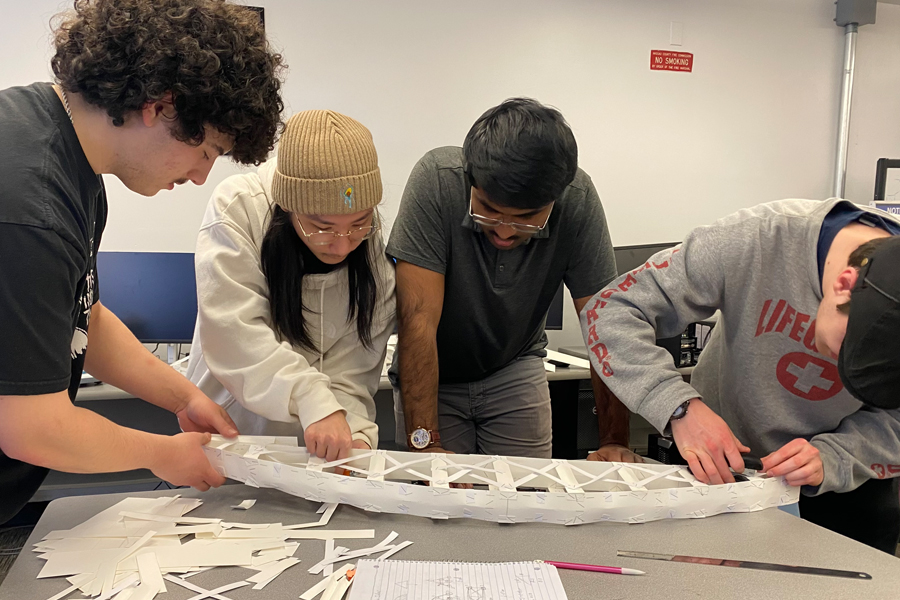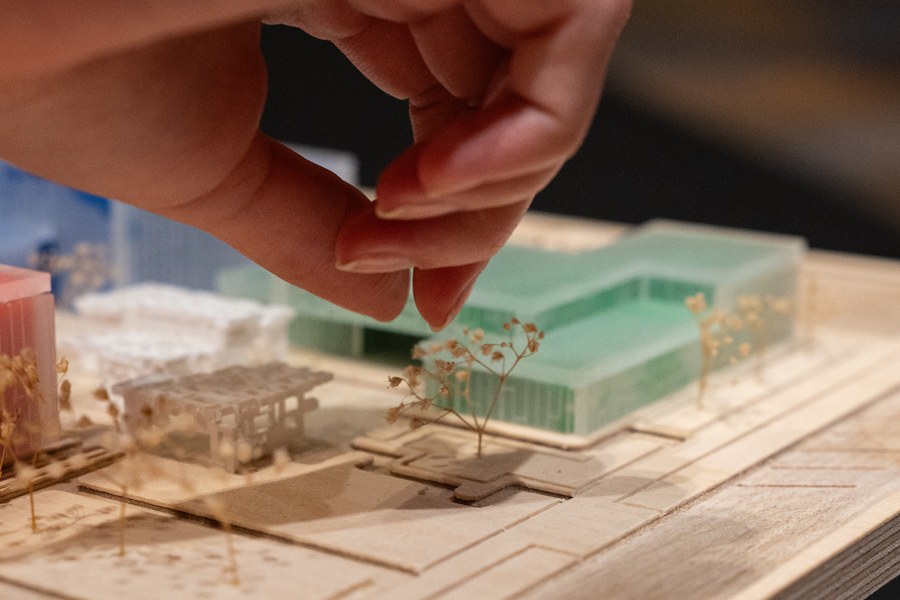Center for Offsite Construction Helps to Establish Modular Interface Standards
The Center for Offsite Construction in the School of Architecture and Design is collaborating with the International Code Council to develop critical standards for modular construction. This effort aims to enhance quality, sustainability, resilience, and affordability in the construction industry by establishing clear guidelines for the connection and configuration of modular components.

The standard will address requirements such as the location and specifications of module-to-module and building-to-module connections for essential building systems; the standardization of dimensions for modular components; and coverage for componentized, panelized, and modularized elements.
“We are excited to collaborate with the Code Council on developing a standard that will transform how modular components are designed and connected,” says Jason Van Nest, M.Arch., director of the Center for Offsite Construction. “This partnership will support the growth of industrialized construction methods and ensure that offsite construction systems meet the highest standards of performance and interoperability.”
“The School of Architecture and Design is committed to preparing professionals who will shape the future of the built environment. Meaningful collaboration with industry partners is essential to our mission,” says Dean Maria R. Perbellini, M.Arch. “We are proud that the Center for Offsite Construction positions New York Tech among the first academic institutions in the nation entrusted to lead the development of standards. This partnership with the International Code Council not only highlights the importance of academic research in advancing industry practices but also reflects our dedication to fostering innovation and rigor and to making a significant impact on the field at the national level.”
“The Code Council is pleased to partner with the Center for Offsite Construction to create a standard that helps address some of the key challenges in advancing deployment of offsite construction, including supporting a project pipeline for factories, bringing certainty to developers through the availability of multiple sources for components, and increasing efficiency of the fabrication and approval processes,” says Ryan Colker, executive director, of energy, resilience, and innovation for the Code Council.
This collaboration reflects a shared vision of modernizing the construction industry by developing consistent and rigorous standards. By promoting compatibility and interoperability, the new standard is expected to accelerate the adoption of offsite construction practices in various applications, including multifamily housing, commercial developments, and institutional projects.
More News

Building Bridges
New York Tech students earned first place at the 2026 KEEN Bridge Design Competition for their outstanding bridge design and structural efficiency.

NOMA Competition: Reimagining Kansas City
Twelve architecture students competed in the 2025 Barbara G. Laurie Student Design Competition sponsored by the National Organization of Minority Architects (NOMA) to propose a model for housing that prioritizes those vulnerable to racialized disinvestment.

Realistic 3-D Colon Model Shifts Paradigm for Drug Development
Assistant Professor Steven Zanganeh, Ph.D., is striving to further improve the model he developed to open the door to drug development for cancer and other conditions.

Additional Alumni Named to Board of Trustees
Two New York Institute of Technology alumni have been named to the Board of Trustees, the most recent alumni to join the university’s governing board.

Celebrate Black History Month 2026
New York Tech celebrates Black History Month with a series of events.

Physician Responds to CDC Vaccine Schedule Changes
Family medicine physician Shane Speights, D.O., site dean for NYITCOM-Arkansas, weighs in on the new recommendations.